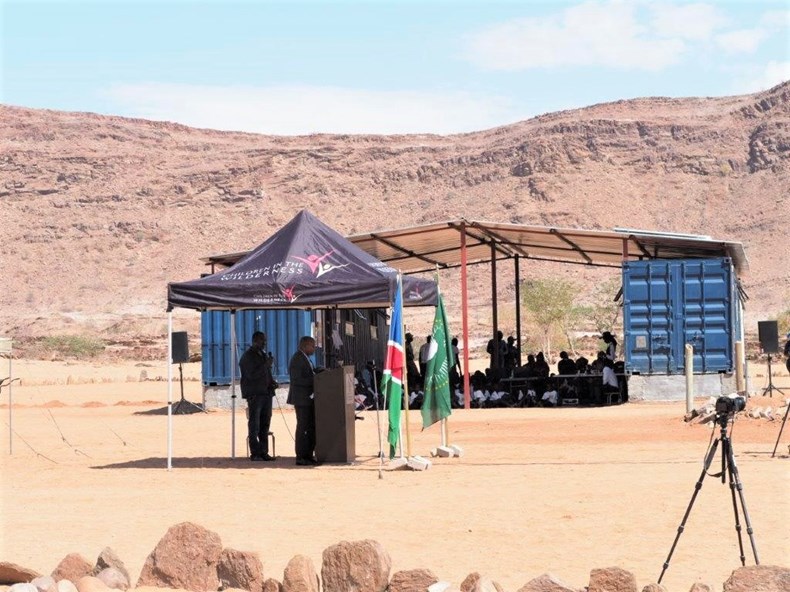Wilderness Safaris Namibia Facilitates New Clinic in Remote Marienfluss Conservancy

As part of Wilderness Safaris Namibia’s ongoing mission to support Serra Cafema’s neighbours in the remote Marienfluss Conservancy in north-west Namibia, the company – in co-operation with various donors and other stakeholders – recently presented a fully-fitted mobile clinic worth USD1.5 million to the Namibian Ministry of Health and Social Services.
The handover took place on 29 April 2022 in Otjinungua, at an inauguration ceremony attended by His Excellency, the President of Namibia, the Honourable First Lady, Regional Governor, the Hon. M Sheya, several other dignitaries, representatives of the community, and numerous contributors to the initiative.
By their very nature, Wilderness Safaris’ camps are situated in some of the most isolated areas on the planet. It is what makes them such a compelling drawcard to overseas visitors seeking adventure and unique wildlife experiences, and why they are so important to the livelihood and wellbeing of the communities that surround them.
Nowhere is this more evident than in Kunene, one of the 14 regions of Namibia. Previously named Koakoland, it covers 144 255 square kilometres (twice the size of Scotland) and yet has a population of just 68 000, making it sparsely populated even by Namibian standards.
And in the remotest part of northern Kunene lies the little-known Marienfluss Conservancy, owned primarily by the Himba people and a model of impactful tourism. To an outsider, life may seem difficult for the Himba, who continue to follow their centuries-old, nomadic way of life. While some youngsters choose to move to a more western lifestyle, the majority are content to remain in their traditional roles, allowing visitors the rare privilege of experiencing the magnificent solitude of the African wilderness alongside a fascinating people who are still at one with it.
Marienfluss is set in a 3 300 sq. km valley, which provides grazing for the Himba’s cattle and goats. Until now, their closest hospital – in fact, medical treatment of any kind – was in Opuwo, over 325 kilometres away. With no transport facilities, this meant even the most basic health care has been unavailable until now.
The clinic comprises two converted shipping containers, which were prepared in Walvis Bay, before they were trucked to Otjinungua for installation.
Amongst a host of services, the new clinic will offer:
- Child vaccinations
- Wound care
- Basic government medication for rural health centres, including intravenous fluids
- Contraception
- A point of entry for all ill-health related conditions and reference to Opuwo if necessary
- Delivery of babies
- Family awareness programmes on hygiene, health, and nutrition for school children
- Sex education for Grade 5 to 7 pupils
Wilderness Safaris Namibia would also like to acknowledge the following organisations for their invaluable contribution to the success of the project.: Children in the Wilderness; PE Minerals Namibia; Highland Round Table 154; Bank Windhoek; Marienfluss Conservancy; Green Teen Team Foundation; Ride for Rhinos; Namport; NamPower Foundation; August 26 Construction and Office of the Governor, Kunene Region.
